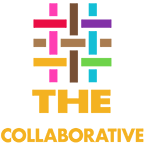HRSA HIV/AIDS Bureau Update: Special Bulletin
Dear Ryan White HIV/AIDS Program Colleagues:
Today, HRSA’s HIV/AIDS Bureau (HAB) recognizes National Black HIV/AIDS Awareness Day (NBHAAD). This day is an opportunity to increase awareness about HIV care, treatment, and support services for Black/African American people in the United States.
Black people continue to face social and structural barriers, including racism, discrimination, homophobia, HIV stigma, medical mistrust, and limited access to high-quality health care, which prevent them from seeking care and treatment. I am proud that HRSA’s Ryan White HIV/AIDS Program (RWHAP) is working to address these barriers and encourage the development of safe and supportive health services for people with HIV.
HRSA is also dedicated to recruiting and retaining a diversified workforce, especially one that is inclusive of people with lived experience in the fields they serve. As part of our NBHAAD activities, we are hosting a special webinar (available in both English and Spanish) on Wednesday, February 8, from 3:00-4:00 PM ET to provide guidance on how to apply for federal job opportunities. We hope you can join us for this event.
Maintaining a diverse workforce and continuing our strong relationships with RWHAP providers, communities, and partners has been key to the success of the RWHAP, especially for improving outcomes for racial and ethnic minorities.
Nearly half of the more than 576,000 RWHAP clients we serve are Black/African American. In 2021, a record-breaking 87.2% of our Black/African American RWHAP clients receiving medical care were virally suppressed, which means we continue to close the disparity gap from 63.3% virally suppressed in 2010.
While we are pleased with our progress, we know there is still more we can do. Several of our RWHAP Part F Special Projects of National Significance initiatives are focusing on developing and disseminating tools and strategies to help improve outcomes for Black people with HIV. These include the Black Women First Initiative and E2i initiatives for Black MSM. Our RWHAP Best Practices Compilation also highlights other strategies that help improve HIV care.
Finally, I’d like to acknowledge all those working to support Black people with HIV, including peer navigators, social workers, case managers, nurses, physicians, and many more who are helping to make a difference for those you serve.
Thank you for your ongoing efforts and dedication to stopping HIV stigma and providing equitable access to HIV care and treatment to more than half a million people with HIV across the country.
Sincerely,
Laura W. Cheever
Laura Cheever, MD, ScM
Associate Administrator

